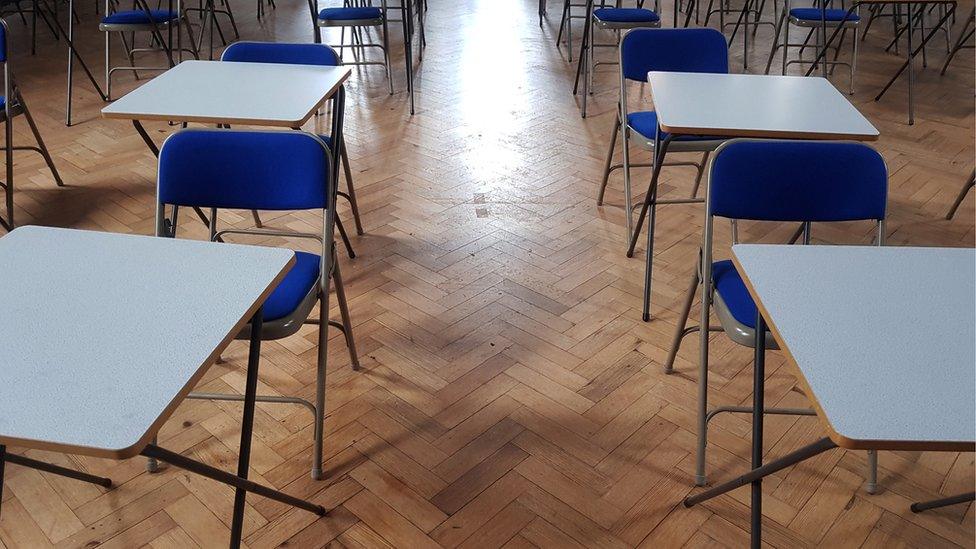Coronavirus: CCEA publishes criteria for exam appeals
- Published

Pupils will not be able to appeal their A-level, AS and GCSE grades in 2020 just because they disagree with the result they think their teacher has given them.
Instead, grades can only be appealed if the student's principal thinks a school or the exam board has made mistakes.
That is according to proposals for appeals published by the Council for the Curriculum Examinations and Assessment (CCEA).
It is, though, consulting on its plans.
The exam board has published its recommendations for how the appeals process will work.
GCSE, AS and A-level exams have been cancelled in May and June due to the coronavirus pandemic.
Teachers and schools will calculate the grades they think pupils would have received had the exams gone ahead.
Schools will also rank pupils in each subject from top to bottom
'Professional judgements'
Those results will then be moderated by CCEA using a statistical model, which includes predictions for pupils and data including the previous performance of each school.
CCEA said that meant a new way of allowing results to be appealed had to be found in the absence of exams which was open, transparent and fair.
CCEA has now published its proposals on the circumstances in which appeals can take place.
Schools will be able to appeal a pupil's result if they think CCEA has made a mistake in how it has standardised grades after receiving them from teachers.
The appeal would have to come from the school, rather than the pupil, though some allowances will be made for those taking qualifications independently.
However, schools will not be able to appeal just because their final results are different to what they expected them to be, unless they have evidence that CCEA has made errors.
CCEA also said it would not be appropriate for pupils to appeal if they disagreed with their teacher's professional judgement of their likely exam performance, or on their position in a ranking order set by a school.
"It is critical that teachers are allowed to reach their professional judgements unhindered by any external influences," CCEA said.
"An appeals process that provides an opportunity to challenge the professional judgments of teachers could inhibit teachers from providing a centre assessment grade for each student that is fair and free from any undue external influence."
CCEA has said that the grades a school has predicted for its pupils should not be shared with pupils or their parents before results day in August.
The exam board also pointed out that an appeal could mean a pupil's grade going down as well as up.
They said that, in contrast to previous years, appeal decisions may be taken by staff involved in the issuing of results.
"Results this summer will be issued following a novel and complex statistical standardisation process which is likely to be fully understood by a more limited pool of awarding organisation personnel than is usually the case," CCEA said.
"Members of staff involved in the operation of the model are perhaps the most likely to identify whether a mistake has been made and quickly to correct a mistake that has occurred."
The full proposals are on CCEA's website and consultation on them runs until 21 May.
- Published19 March 2020
- Published22 April 2020